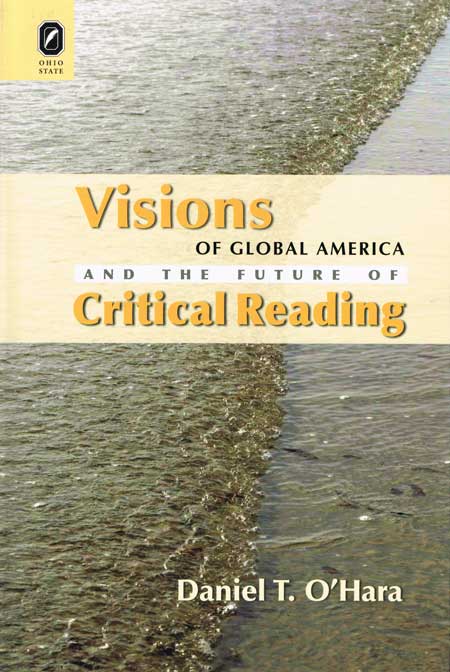Visions of Global America and the Future of Critical ReadingDaniel T. O’Hara |
 Oct 2009 Literary Criticism/American; Literary Criticism/Theory 192 pp. 6x9  $54.95 cloth 978-0-8142-1104-5 Add cloth to shopping cart $14.95 CD 978-0-8142-9202-0 Add CD to shopping cart Shopping Cart Instructions Review/Change Shopping Cart & Check-out | |||
|
read excerpts from
the book • |
“Brilliant, mature, highly accessible, rapid, and dazzling both as critical reading and in elucidation of the theoretical premises that permit the readings. Saturated in great poetic thinkers such as Blake, Yeats, and Stevens, this book includes wonderful readings of American fiction by Henry James as well as by important but relatively neglected writers of the Cold War era, including John Cheever, James Baldwin, and James Purdy.” —Jonathan Arac, Andrew W. Mellon Professor of English, University of Pittsburgh The forces of globalization have transformed literary studies in America, and not for the better. The detailed critical reading of artistic texts has been replaced by newly minted catchphrases describing widely divergent snippets and anecdotes—deemed mere documents—regardless of the critic’s expertise in the appropriate languages and cultures. Visions of Global America and the Future of Critical Reading by Daniel T. O’Hara traces the origin of this global approach to Emerson. But it also demonstrates another, tragic tradition of vision from Henry James that counters the Emersonian global imagination with the hard realities of being human. Building on this tradition, on Lacan’s insights into the real, and on Badiou’s original theory of truth, O’Hara points to how we can, and should, reground literary study in critical reading. In Emerson’s classic essay “Experience” (1844), America appears in and as a symptom of the critic’s self-making that sacrifices the power of love to this visionary project—a literary version of the American self-made man. O’Hara rescues critical reading using James’s late work, especially The Golden Bowl (1904), and builds on this vision with examinations of texts by St. Paul, Emerson, Wallace Stevens, James Purdy, John Cheever, James Baldwin, John Ashbery, and others. Daniel T. O’Hara is professor of English and the first Andrew W. Mellon Term Professor of Humanities in the College of Liberal Arts, Temple University. | |||

